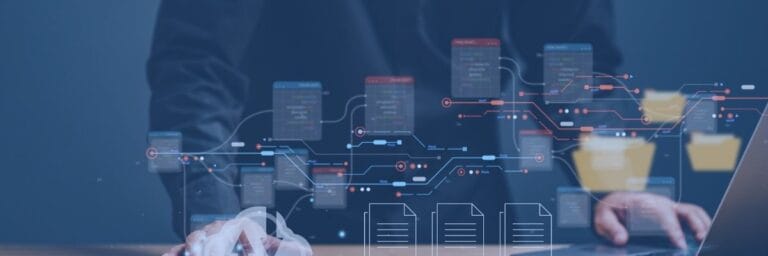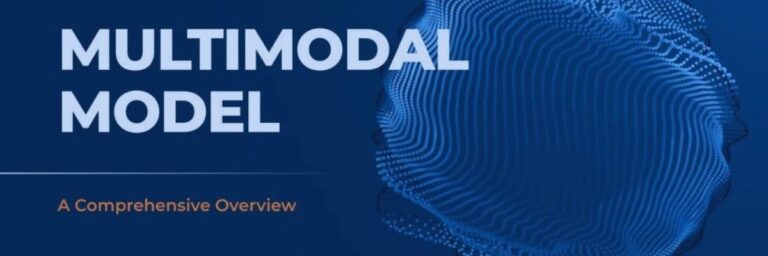In 2024 alone, over 1 billion data records were compromised globally, as per TechCrunch, underscoring the critical need for robust data protection measures.ISO 27701 certification provides organizations with a structured framework to manage and protect personally identifiable information (PII), enhancing their resilience against such breaches.
As organizations collect, store, process, and use a vast amount of sensitive data on an everyday basis, it’s crucial to have robust data privacy management systems in place. It’s a great way to prevent the mishandling of data and, at the same time, uphold the virtues of trust and ethical commitment as an organization.
ISO 27701 certification is a standard that offers a structured framework to strengthen data privacy practically across companies of all sizes. In this article, we’ll delve into the details of ISO 27001 certification—its purpose, the requirements to get this certification, the process of getting certified, and some more helpful details for organizations looking to strengthen their privacy landscape.
What is ISO/IEC 27701:2019 Certification?
ISO/IEC 27701:2019 is a global certification that provides a framework for companies to establish, implement, and improve their privacy information management systems (PIMS). Its purpose is to help companies manage and protect the privacy of the personal information they collect.
Let’s illustrate this with an example:
Imagine a multinational e-commerce company called “E-Shop Global,” which operates in several countries and handles a vast amount of customer data, including names, addresses, payment information, and purchase histories. Ensuring this sensitive personal information’s privacy and security is crucial for legal compliance and maintaining customer trust.
To address this, E-Shop Global pursued ISO/IEC 27701:2019 certification.
Here’s how the process unfolds:
Assessment and Gap Analysis
E-Shop Global begins by conducting an initial assessment of its current privacy management practices against the ISO/IEC 27701 requirements. They identify areas where improvements or additional measures are needed to meet the standard’s criteria.
Transform Your Business with AI-Powered Solutions!
Partner with Kanerika for Expert AI implementation Services
Establishment of PIMSAI in Robotics: Pushing Boundaries and Creating New Possibilities
Explore how AI in robotics is creating new possibilities, enhancing efficiency, and driving innovation across sectors.
AI in Robotics: Pushing Boundaries and Creating New Possibilities
Explore how AI in robotics is creating new possibilities, enhancing efficiency, and driving innovation across sectors.
Based on the assessment, E-Shop Global establishes a Privacy Information Management System (PIMS) tailored to their specific operations. This system is designed to manage the processing of personal information in a manner consistent with privacy laws and regulations.
Implementation
E-Shop Global implements the PIMS across its organization. This involves integrating privacy considerations into their existing processes and systems. They ensure that employees are trained and aware of their roles and responsibilities in protecting personal information.
Documentation and Record Keeping
The company maintains detailed records of its privacy policies, procedures, risk assessments, and any incidents related to personal information.
Read More: Case Study: Data Governance for Security Compliance for a German Automaker in the USA
Regular Audits and Reviews
E-Shop Global conducts regular internal audits to assess its PIMS’s effectiveness and identify improvement areas. They also engage external auditors to perform independent assessments against the ISO/IEC 27701 standard.
Transform Your Business with AI-Powered Solutions!
Partner with Kanerika for Expert AI implementation Services
Continuous Improvement
The company continuously strives to enhance its privacy management practices. They update policies and procedures in response to changes in privacy laws or emerging risks.
Certification Process
Once E-Shop Global believes they have met all the ISO/IEC 27701 requirements, they engage a third-party certification body to perform a final audit. If the audit is successful, the certification body issues an ISO/IEC 27701:2019 certificate to E-Shop Global.
Maintaining Certification
E-Shop Global must demonstrate ongoing compliance with the standard to maintain its certification. This involves regular surveillance audits and periodic recertification assessments.
By achieving ISO/IEC 27701:2019 certification, E-Shop Global demonstrates a commitment to protecting the privacy of their customers’ personal information. This certification helps them comply with legal requirements, builds trust with stakeholders, and enhances their reputation as a responsible custodian of sensitive data.
ISO/IEC 27701 works to clarify roles and responsibilities within an organization, ensuring that everyone understands their part in safeguarding personal information. This structured approach not only builds trust with customers but also with employees, who are assured of a reliable framework for information management.
Moreover, the certification supports compliance with GDPR and other applicable privacy regulations. This compliance is a critical factor in gaining and maintaining the trust of stakeholders, as it shows adherence to stringent legal standards.
Additionally, ISO/IEC 27701 facilitates agreements with business partners where the processing of Personally Identifiable Information (PII) is mutually relevant. By aligning with recognized standards, businesses can confidently engage with partners, further reinforcing their commitment to data privacy and security.
This comprehensive approach ensures that E-Shop Global remains a trusted entity in managing personal information, satisfying both regulatory requirements and customer expectations.

Importance of ISO 27701:2019 Certification?
Let’s understand why this certification holds value for modern businesses.
Protection of private information
ISO 27701 is an extension of the ISO 27001 certification. ISO 27001 considers the overall information security within an organization, whereas the purpose of ISO 270001 is more narrowed down—it addresses the protection of private information.
Ensures compliance
ISO certification helps establish the fact that your organization complies with privacy laws and regulations (GDPR, for instance). This certification is very useful if you’re a company dealing with sensitive personal information.
Protection of data subjects’ rights
This standard certification ensures that your company respects the data subjects’ rights, which includes their right to rectify, delete, or restrict the use of the stored information.
Fosters ongoing improvement
The certification also ensures your organization continuously improves and makes sure your organization continuously works towards improving its privacy management systems.
Read More: How Do I Identify Critical Data in My Organization?
Who should use ISO/IEC 27701
While it is not compulsory, ISO/IEC 27701 certification applies to a wide range of organizations. It includes companies of all sizes, such as private companies, public organizations, government agencies, and not-for-profit organizations, that control or process personally identifiable information (PII) within an information security management system (ISMS).
Transform Your Business with AI-Powered Solutions!
Partner with Kanerika for Expert AI implementation Services
ISO 27701 Benefits
Besides building credibility, here are some other benefits of this certification:
- ISO 27701 certification ensures your organization complies with the General Data Protection Regulation General data protection regulation (GDPR).
- The certification allows you to operate confidently, knowing that your organization has proper risk management and security management systems.
- The certification saves you valuable time, as you can effectively reply to security questionnaires and follow security legislation.
- When your organization has obtained the certification, it signifies that you already established the framework for PIMS. This will help in case the Data Protection Act (DPA) evolves.
ISO 27701 Requirements
It’s a prerequisite for ISO 27701 certification that you have ISO 27001. Your organization’s personal information management system (PIMS) is built on the foundation of your information security management system (ISMS). You can get ISO 27701 while getting the 27001—it’s easier and less expensive, easier and less expensive to do than doing them in a series.
The organization applying for ISO 27701 certification needs to fulfill its rigorous criteria. Here’s everything you have to do to meet the requirements:
- Design and implement a PIMS at your organization following the ISO 27701 framework.
- The PIMS has to elaborate rigorous systems for managing personally identifiable information (PII), and how it is being obtained, stored, used, shared, or deleted.
- Define user roles and establish strong passwords for all stakeholders who have permission to process and control privacy-related information.

How to get certified to ISO 27701?
Let’s have a look at the procedures you have to go through to get ISO 27701 certification for your organization:
1. Know your basics
First and foremost, understand what the certification is all about—whether you’re eligible to apply, the requirements, and the principles it follows to manage privacy information.
2. Take training
You might consider taking a course or participating in workshops on ISO 27701 to familiarize yourself and your team with the certification and its nuances.
3. Perform gap analysis
Study the ISO 27701 requirements and compare your existing privacy management system. This gap analysis will help you identify problem areas, and you can work on them immediately.
4. Do the paperwork
Create the necessary documentation, such as policies and processes that fit your company’s privacy practices.
5. Implement the ISO 27701 framework
Follow the ISO 27701 framework and implement the privacy management system in your organization. Educate your employees about it and make sure they abide by the new guidelines.
6. Conduct risk assessment
To mitigate any vulnerabilities and privacy threats, perform a privacy risk assessment in your organization.
7. Do internal audits
Conduct internal audits and evaluate your privacy management system. This is a necessary step to identify any non-conformity.
8. Rectify problems
If you encounter any non-conformity, take corrective measures to enhance your privacy management system.
9. Select a third-party auditor
Find an accredited third party to audit your organization’s PIMS externally.
10. Perform external audit
Conduct the external audit and evaluate your company’s compliance with the ISO 27701 norms.
11. Focus on constant monitoring
You will receive the certificate if your organization meets the ISO 27701 requirements. Only getting the certification is not enough— monitor your PIMS consistently to maintain the certification.
If you’re just getting started with the processes for ISO 27701 certification, remember that it’s a lengthy procedure that requires a lot of time, commitment, and patience. You can consult privacy management experts to make the process smooth and hassle-free.
Kanerika: Your ISO certified AI, Analytics, and Automation partner
Data privacy and security are paramount for all businesses in today’s highly digitized world. As ISO certified vendor, Kanerika ensures all your data is secure during each stage of the project delivery.
The ISO certification reasserts that the Information Security Management System at Kanerika is robust, efficient, and compliant with all the requirements set forth by the International Organization for Standardization (ISO). It serves as a powerful differentiator, instilling confidence in our clients that their data is in capable and secure hands. The certificate applies to all the products and services Kanerika offers, including IT Consulting, AI/ML, Data Analytics, Data Integration, Data Governance, Product Engineering, RPA, and others.
“At Kanerika, we believe it’s a fundamental responsibility to ensure the resilience and reputation of the consulting firm and its clients. Beyond compliance, the ISO certification shows our commitment to protecting our client’s most valuable asset – Data,” says Samidha Garud, Co-Founder and CEO, Kanerika Inc.
With a proven track record in providing cutting-edge IT solutions, including robust data governance services, Kanerika has the expertise and experience to guide your business from chaos to clarity. Our dedicated team is committed to helping you achieve and maintain the highest standards of certification, ensuring that your organization’s data management practices are compliant and optimized for efficiency and security.
Choose Kanerika and embark on a journey towards seamless, secure, and compliant data management. Your business deserves nothing less than the best; with Kanerika, you’re in expert hands.
FAQ
What is ISO 27701 certification?
ISO 27701 builds upon ISO 27001, focusing specifically on *how* to manage personal data privacy. It’s essentially a privacy information management system (PIMS), providing a framework for organizations to demonstrate compliance with privacy regulations like GDPR. Think of it as a guide to responsible handling of your customers’ and employees’ personal information. Achieving certification shows a strong commitment to data protection.
What is the difference between 27701 and 27001?
The difference lies in the “77” versus “00” in the middle. This likely represents a significant internal version or revision number within a particular system or product line (e.g., software, hardware). 27701 suggests a later or more advanced iteration compared to 27001, indicating updated features or improvements. The specific meaning depends entirely on the context of where these numbers appear.
What are the key principles of ISO 27701?
ISO 27701 builds on ISO 27001, adding a crucial layer of privacy information management. Its core principles focus on establishing, implementing, maintaining, and continually improving a Privacy Information Management System (PIMS). This involves demonstrating accountability for processing personal data and fulfilling legal obligations regarding data privacy. Ultimately, it aims to build trust and demonstrate responsible data handling.
What is the cost of ISO 27701 certification in India?
The cost of ISO 27701 certification in India isn’t fixed; it varies significantly. Factors like your organization’s size, location, and the chosen certification body heavily influence the price. Expect to budget several lakhs of rupees, encompassing auditing, documentation review, and certification fees. Getting multiple quotes is crucial for cost comparison.
How much is ISO 27701 certification?
There’s no single price for ISO 27701 certification. The cost depends heavily on your organization’s size, complexity, and existing security practices. Expect to factor in auditor fees, preparation time (internal audits & documentation), and potential remediation costs. Get quotes from multiple certification bodies for accurate budgeting.
What is ISO 27701 control objectives?
ISO 27701’s control objectives center on establishing and maintaining a robust Privacy Information Management System (PIMS). It aims to help organizations effectively manage personal data, ensuring compliance with privacy regulations and building trust. This involves implementing controls across the entire data lifecycle, from collection to disposal, focusing on accountability and transparency. Ultimately, the objectives are to protect individual privacy rights and demonstrate responsible data handling.
What is the scope of QMS?
A Quality Management System (QMS) covers everything needed to consistently meet customer and regulatory requirements. Its scope encompasses all processes impacting product or service quality, from initial design and development through production, delivery, and post-sale support. Essentially, it’s a framework ensuring consistent, high-quality outputs and customer satisfaction. The exact breadth will vary depending on the organization and industry.
What is the difference between ISO 27701 and SOC 2?
ISO 27701 extends ISO 27001 by focusing specifically on *privacy information management*—how an organization handles personal data. SOC 2, on the other hand, is a US-centric report on a service organization’s controls related to security, availability, processing integrity, confidentiality, and privacy. Essentially, ISO 27701 is a *standard* for privacy, while SOC 2 is a *report* on security and privacy controls, often used for vendor due diligence. They serve different purposes, but can complement each other.
What is the current version of ISO 27701?
ISO 27701, the standard for PIMS (Privacy Information Management Systems), doesn’t have “versions” in the same way software does. It’s built upon and extends ISO 27001. Therefore, any updates to the underlying ISO 27001 will indirectly impact its application within the context of ISO 27701’s privacy framework. It’s best to check for updates related to ISO 27001 to understand any relevant changes affecting data privacy management.
When was ISO 27701 introduced?
ISO 27701, the privacy extension to the ISO 27001 information security standard, wasn’t launched on a single date but rather through a phased process. Its initial publication was in August 2019, marking the formal availability of this crucial framework for managing personal data privacy. Think of it as a major update, rather than a single point-in-time release.
What is SOC 2 in cyber security?
SOC 2 (System and Organization Controls 2) is a cybersecurity auditing standard ensuring service providers protect their clients’ data. It focuses on the *trust principles* around security, availability, processing integrity, confidentiality, and privacy. Essentially, it’s a report verifying a company’s data security practices meet rigorous standards. Getting SOC 2 compliant demonstrates a high level of security responsibility to clients.
What is ISO safety standards?
ISO safety standards are a globally recognized set of guidelines ensuring consistent safety practices across various industries. They provide a framework for managing risks, preventing accidents, and protecting workers and the environment. Think of them as best-practice blueprints for safety, constantly updated to reflect evolving hazards and technologies. Compliance often demonstrates a company’s commitment to a safe and responsible operational environment.
What is the difference between ISO 27701 and GDPR?
GDPR sets the rules for *how* you protect personal data in Europe; ISO 27701 provides a *framework* for implementing those rules and demonstrating compliance. Think of GDPR as the law, and ISO 27701 as a helpful guide to meeting its requirements. ISO 27701 offers a structured approach to managing privacy information management (PIM).









